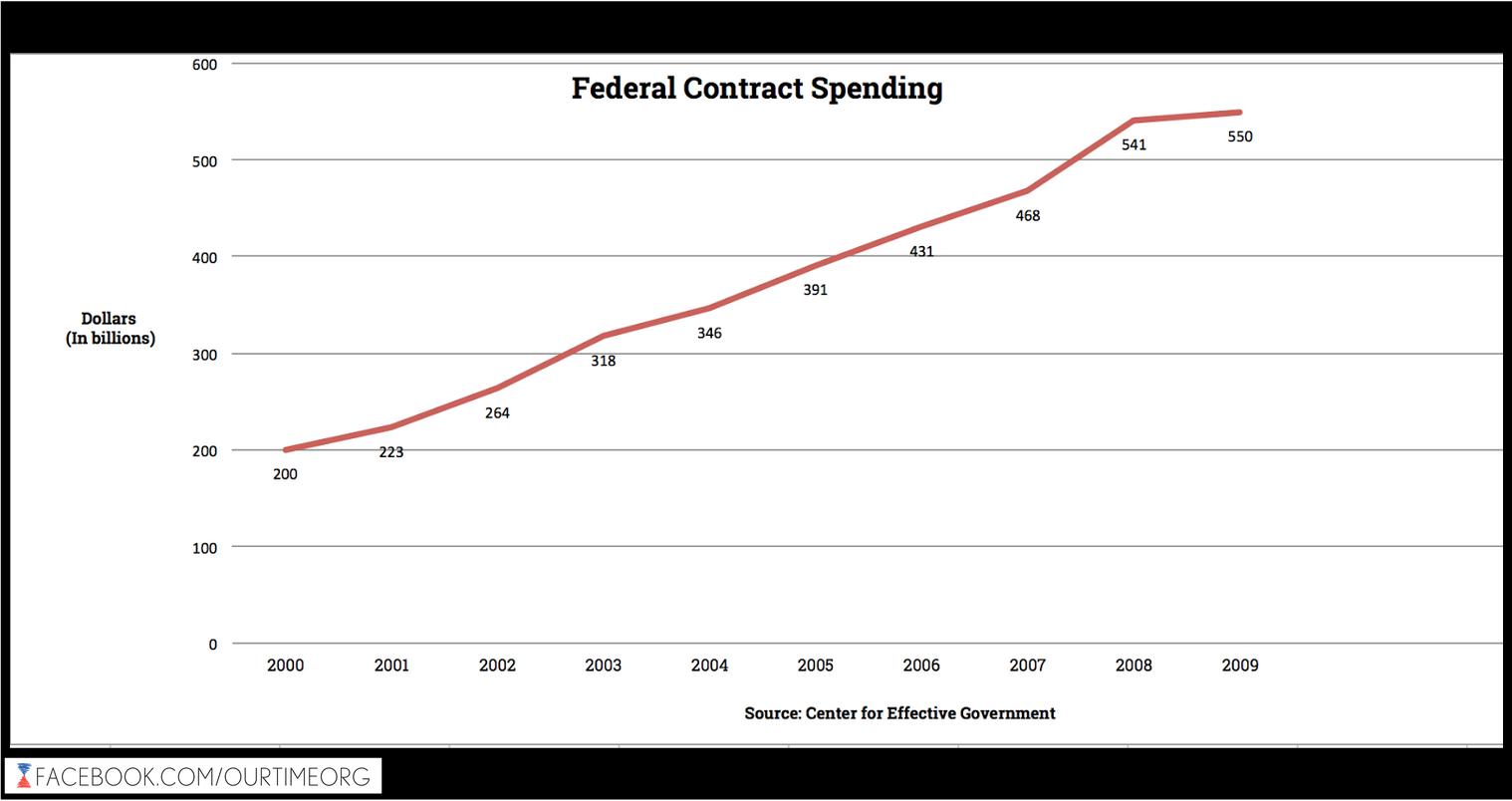A Study In Irony: Government Outsourcing
By:
Government outsourcing reminds me of two jokes:
“The Democrat looks at the glass and says it’s half full. The Republican looks at it and says it’s half empty. I looked at it and said, “Who the hell drank my water?!” And…
“The problem with political jokes is they get elected.”
When it comes to government outsourcing, the joke is quite often on us, because we’re looking at the glass of water all wrong.
Let’s examine the irony for a moment. For many years, the Republican Party has advocated for privatization and the Democratic Party has vehemently opposed it. After all, when you boil it down, the modern GOP believes in the purity of the private sector and has an instinctual distrust of government. The Democratic Party believes in the purity of government and has an instinctual distrust of the private sector. But in reality, that line of thinking makes no sense.
If you believe in the power of capitalism – that the drive for profit creates an efficient market – then why would you believe in privatizing government? Outsourcing government functions to the private sector doesn’t necessarily make services more cost-effective, even if you believe that it creates a more efficient market. The market works by creating an incentive to drive up profits, which means that privatized industries like prisons, toll roads and hospitals have an incentive to increase public costs, not to lower them. Remember learning about Adam Smith’s “Invisible Hand” in Econ 101? It may not be visible, but it’s the same hand in outsourcing that’s smacking us in the face.
Think about it. If you have a lucrative government contract, and your goal – and fiduciary responsibility – is to maximize profits to return to your shareholders, wouldn’t you have an interest to create more services, not fewer? Higher bills, not lower ones?
The stated goal might be to shrink government, but in reality, large-scale privatization actually dramatically increases it. The number of government employees may be static or even shrinking (a ridiculous measurement to begin with considering the average federal executive branch employee salary is $80,000 and a single drone can cost $28 million). But government can still be getting far bigger.
This isn’t just theory, it’s reality: Federal contracting accounted for around $200 billion in 2000 but rose to $550 billion in 2009. Last year, it did drop to $450 billion, mostly as a result of sequestration.

It’s not only the case when the government turns over entire functions to the private sector, either. Government consulting is a handsome gig if you can land it. At every level of government – federal, state and local – the government brings in consultants to assist in handling its duties. The taxpayer dollars it costs to pay a consultant is no different than those paid via salaries, except of course, the consultant is being paid by the hour. So the longer a project takes, the more money a consultant makes.
There’s also an underlying question of why the government lacks enough internal expertise to function without a consultant in the first place. One of the reasons why outsourcing core government functions and consulting expertise is attractive is that there’s a brain drain in government. Since government doesn’t tend to compensate top-level talent like the private sector does or reward its finest people based on merit, the best and brightest tend to leave. It’s a revolving door, where the government often pays to train employees on the inside before they land lucrative careers on the outside, effectively paying many of the same people more to consult than the government was willing to compensate them in salary to keep their expertise in-house. In fact, Millennials have shown an interest in working for the federal government early in their careers, but last less than 4 years on average working for Uncle Sam. Sooner or later, the revolving door opens too wide to pass up. In fact, the White House’s own Administrator for Federal Procurement Policy took a top job at a marketplace for federal contracting, FedBid.
Let me be clear: the government isn’t the most nimble or efficient enterprise out there. And don’t get me wrong, I don’t believe the government should be in the business of everything, or anything close to it. We need to do a better job of letting the private sector stick to what it does best – deriving profit, creating jobs and being innovative – and leave those core government functions where marketplace efficiencies aren’t the chief priority -- like schools, roads, public safety and corrections –to an entity that’s not in the business of making money.
When I call 9-1-1, I don’t want to get put on hold because of cutbacks, and I want the paramedic to show up with the equipment needed to save my life, not what makes the most business sense. And when I want to treat myself to a ridiculously large soda, I don’t want the government to tell me I can’t.
Like I was saying, the other problem with political jokes…they’re often on us. It’s time we stop laughing and start paying attention.
The author of this piece can be followed on Twitter at @amfriedson
